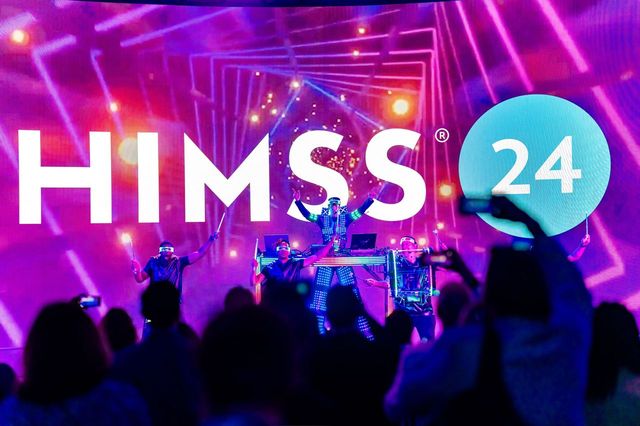This year’s HIMSS conference in Orlando, which wrapped on Friday, allowed healthcare technology leaders from around the world to convene, have discussions and network. The event also featured a slew of news announcements.
Below are six notable announcements made during the conference.

With the Rise of AI, What IP Disputes in Healthcare Are Likely to Emerge?
Munck Wilson Mandala Partner Greg Howison shared his perspective on some of the legal ramifications around AI, IP, connected devices and the data they generate, in response to emailed questions.
Google Cloud releases new clinical generative AI tools
Google Cloud unveiled new AI features aimed at helping providers, payers and any other healthcare organizations seeking to make better use of their clinical data.
The tech giant’s first announcement was the launch of its Vertex AI Search for Healthcare. The product is a generative AI-powered search function that can help clinicians quickly parse through patient data and clinical notes.
This tool is available as an API, which allows users to customize their settings to best fit their EHR workflows. Additionally, it inspires trust from its users by displaying footnotes that link back to the specific data points included within the generated search results.
Google Cloud also announced that it is adding two new capabilities to its healthcare-specific large language model (LLM). The LLM, called MedLM, is a generative AI model designed to speed up workflows for clinicians and medical researchers.
The first new capability is an API designed to help clinicians better classify chest x-rays for screening and diagnostic use cases. The second is an API that gives clinicians a chronological list of a patient’s conditions, along with short AI-generated summaries about each of them.
GE HealthCare & Mass General Brigham announce plan to accelerate their AI research
GE HealthCare and Mass General Brigham announced that they are integrating foundation models into their AI research and development. The two partners began their AI research collaboration in 2017.
A foundation model refers to a large-scale machine learning model that serves as a basis for building more specialized models for specific tasks or domains. Typically, these models are pre-trained on large amounts of diverse data and are capable of understanding and generating human-like text with a high degree of accuracy.
By integrating foundation models into their AI research, GE Healthcare and Mass General Brigham are seeking to accelerate the go-to-market time for healthcare AI tools.
“Foundation models really help accelerate the time-to-market for AI products,” said Parminder Bhatia, GE HealthCare’s chief AI officer. “Any future GE HealthCare AI developer who wants to build an application can now build the application about 10 times faster than in the past.”
Philips & AWS deepen collaboration to scale digital pathology in the cloud
Philips and AWS announced that they are expanding their relationship by scaling digitized pathology slides in the cloud.
The two companies struck a partnership seven years ago and since then have been working on ways to advance innovation. For their latest initiative, they seek to help pathology labs better store and analyze vast volumes of data, as well as adopt more streamlined, cloud-based workflows to reduce clinician burnout.
Philip’s new phase of collaboration with AWS aims to create an infrastructure in which pathologists can receive large images remotely in a way that is “fast, secure and over the air,” explained Shez Partovi, chief innovation and strategy officer at Philips. The overarching goal is to advance the adoption of digital pathology workflows to boost productivity.
Innovaccer acquires Pharmacy Quality Solutions
Health data analytics company Innovaccer announced its second acquisition in three months. It bought Pharmacy Quality Solutions, a pharmacy-payer performance technology company.
“We are excited to work with the Pharmacy Quality Solutions team to create an ecosystem approach of accelerating value-based care, with data and AI,” Innovaccer CEO Abhinav Shashank said in a statement. “The possibilities that this acquisition brings to Innovaccer and our valued stakeholders pave a new area of growth. The acquisition not only expands our capabilities and expertise in improving patient outcomes, establishing clinical data exchange in payers and now by adding the PQS pharmacy solutions, we have created a connected ecosystem of payer, provider and pharmacy.”
Oracle advances its generative AI healthcare solutions
Oracle released a new generative AI service to boost care management efficiency.
The company introduced new features within its healthcare data platform, including a generative AI service to streamline care management, clinical quality analytics and automated alert systems. There are also new features that flag metrics related to social determinants of health, childhood wellness, immunization and prevalent chronic conditions.
Linus Health buys Aural Analytics
Cognitive testing platform Linus Health acquired Aural Analytics. Through the purchase, Linus gains the Aural’s speech analytics software, which is called Speech Vitals.
The software is sold to providers and life science organizations for the purposes of pharmaceutical research and clinical trials. It gathers speech samples from patients through app-based assessments and then analyzes the samples to evaluate cognitive conditions. The product is designed to identify various neurological disorders including dementia, autism and ALS.
Photo: HIMSS















